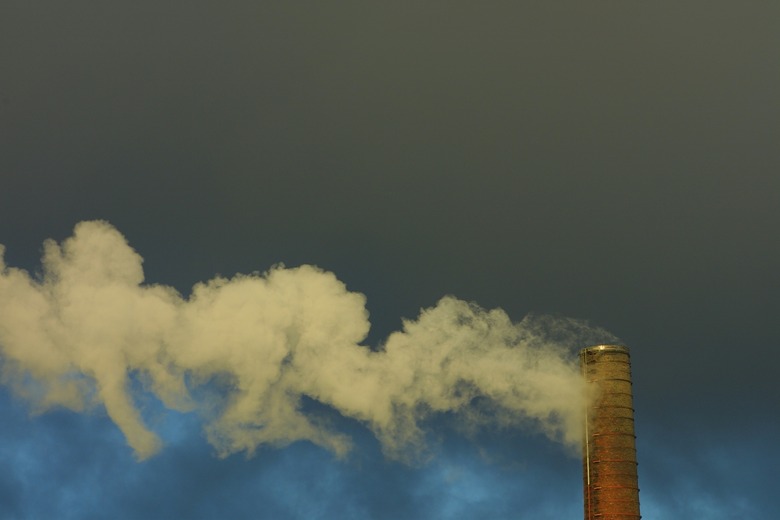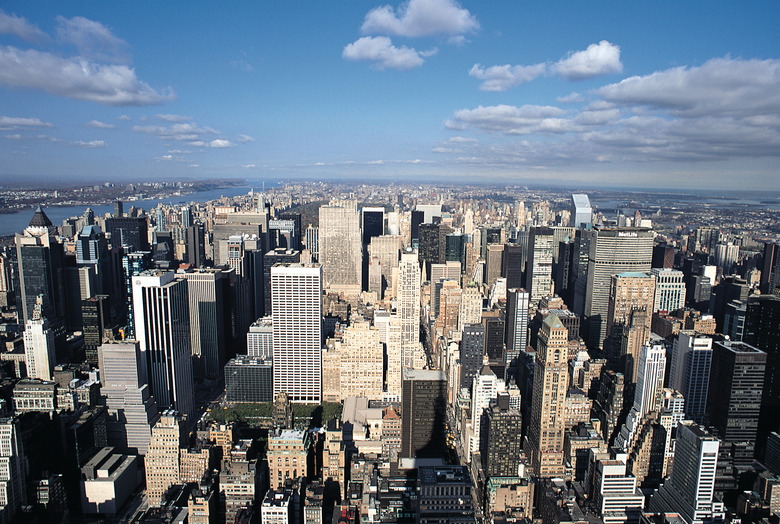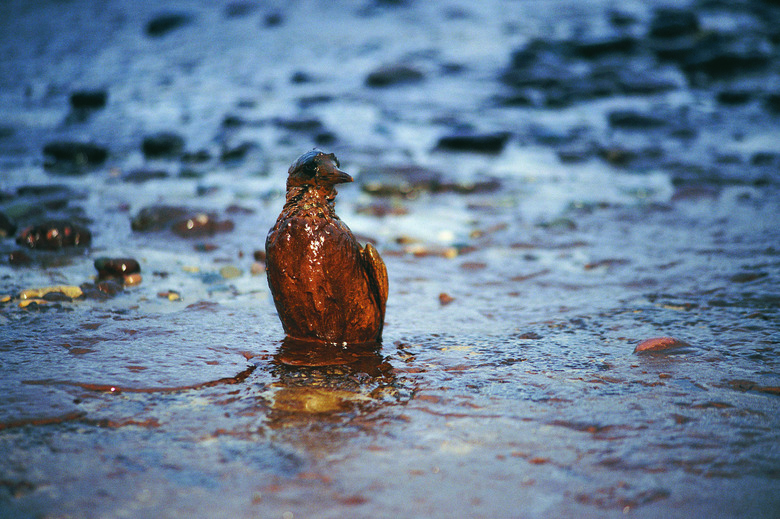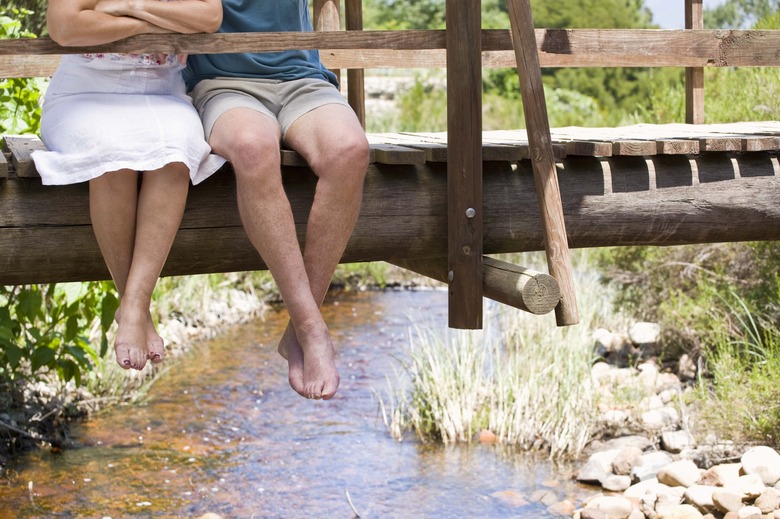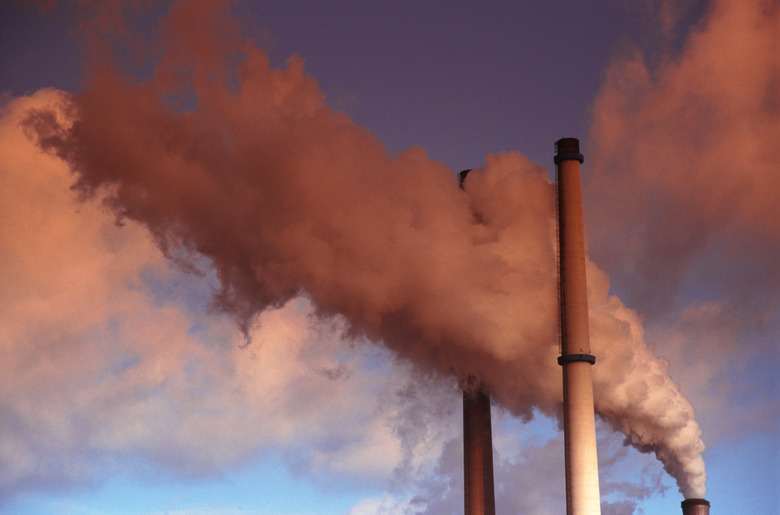Pollution Effects On Birds
Pollution is all around us. It is in the air that we breathe, the water we drink and the food that we eat. But humans are not the only ones combating the problems of poor air quality and food and water laced with chemicals. Birds are highly susceptible to almost all forms of pollution, from chemicals that make up water pollution to the excess noise from cities. Read on to learn about the effects of pollution on birds.
Noise Pollution
Noise Pollution
Some people just want some peace and quiet, and apparently, so do the birds. The University of Colorado at Boulder has conducted a three-year study that proves that noise pollution affects birds and their habits. The biggest problem that birds face when there is too much noise is their ability to communicate. Birds that vocalize at lower frequencies are easily drowned out by noise pollution, affecting their ability to attract a mate and socialize with the other birds in their community. But finches and other birds that vocalize at a higher frequency appear uninfluenced by the hustle and bustle of noise pollution – apparently ignoring the mass exodus of their fellow, winged friends.
Oil Pollution
Oil Pollution
Birds that live near bodies of water (called water birds) can be greatly affected by what is known as oil pollution. Approximately 500,000 water birds are killed every year due to oil spills. When birds unexpectedly happen upon an oil spill in their aquatic environment, the oil coats their feathers and causes them to stick together. Feathers ordinarily provide a waterproof protection for birds, but when the feathers are covered in oil they lose this quality. This causes some of their skin to become exposed and at risk to the elements. Birds who attempt to clean their feathers will often ingest the oil and become ill or even die from poisoning.
Light Pollution
Light Pollution
There is such a thing as too much light, at least, in the bird world. Bright city lights look beautiful at night when viewed from a distance, but that is no consolation for the bird that can't find the way home. Birds use the bright stars in the sky to determine their route for the next day, and when the city lights interfere with their view, birds can become confused and disoriented.
Light pollution can affect the flight patterns of birds, rendering their usual migration paths impossible to follow. City birds are also finding it very difficult to sleep with all of the bright lights, and some birds have become uncharacteristically active at night. Unfortunately, light pollution also causes some birds to succumb to deadly collisions with buildings and other objects in the sky that may be difficult to see when "blinded by the light."
Water Pollution
Water Pollution
Think twice before you send that helium balloon up into the sky. Heavy winds commonly lead balloons to the ocean, and many a bird has been found with a balloon string hanging from his beak or wrapped around his neck. But balloons are just the beginning. Municipal, agricultural and industrial waste account for the majority of water pollution throughout the world. Pesticides and heavy metals that are leaked into rivers, lakes and streams can cause illnesses and death in birds, threatening individual species. Water pollutants can also reduce the amount of oxygen in the water that eventually kills fish in a process called eutrophication. Birds that rely on fish as a source of food will often need to move to other areas to feed, causing an upset to the natural balance of the ecosystem.
Air Pollution
Air Pollution
Poor air quality due to smog and noxious gases can have a devastating effect on the bird population in dense areas. Not surprisingly, these pollutants have even drifted up into the polar regions, putting the lives of arctic birds at risk. Birds have very high respiratory rates, which make them even more susceptible to pollutants in the air and to airborne impurities.
Cite This Article
MLA
Fredericks, Jonae. "Pollution Effects On Birds" sciencing.com, https://www.sciencing.com/pollution-effects-birds-5317418/. 30 September 2021.
APA
Fredericks, Jonae. (2021, September 30). Pollution Effects On Birds. sciencing.com. Retrieved from https://www.sciencing.com/pollution-effects-birds-5317418/
Chicago
Fredericks, Jonae. Pollution Effects On Birds last modified August 30, 2022. https://www.sciencing.com/pollution-effects-birds-5317418/
